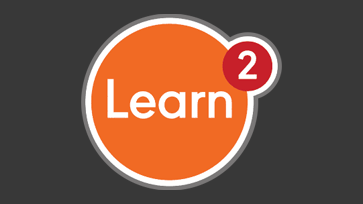Leadership for New Managers: Master Strategy Implementation
Leadership for New Managers: Master Strategy Implementation Stepping into a management role comes with many exciting challenges. Whether you’re leading a small team or tackling major projects, your effectiveness as a leader will shape your team’s success. For new managers, leadership shines as both an art and a science—one rooted in emotional intelligence, strategic decision-making, and clear communication. Understanding leadership starts with recognizing your role as the glue that holds your team together. Managers don’t simply direct tasks; they inspire action and create environments where individuals thrive. This post will explore key leadership tips and dive into strategy implementation practices designed to help new managers excel. Why Leadership Skills Matter for New Managers Your team looks to you for guidance. As a new manager, developing strong leadership skills sends a clear message: you’re ready to lead with purpose and accountability. Leaders who confidently connect with their teams often see better productivity, stronger collaboration, and long-term loyalty. Transform your mindset from task manager to team builder. Focus on listening actively, sharing feedback generously, and meeting challenges head-on. Effective leaders empower their teams. This empowerment often starts with a willingness to adapt, coach, and invest in personal growth. Leadership requires steady action. A proactive mindset helps a manager move initiatives forward while addressing challenges quickly. With consistent effort, new managers can build trust, cultivate transparent communication, and ignite a culture of innovation within their teams. Building the Foundation of Strategy Implementation Strategy implementation plays a vital role in aligning goals, resources, and outcomes. For managers, the execution of plans holds as much importance as the plans themselves. A clear strategy provides direction, but strong implementation ensures momentum. Start by communicating goals in a way that resonates with your team. Share your vision clearly. Let your team understand the “why” behind your objectives. When individuals connect with the mission, they contribute more and feel committed. Remember: clarity propels action. An actionable strategy breaks down into manageable steps. Managers who map out priorities, timelines, and responsibilities equip their teams for success. Keep progress visible. Use team meetings, project dashboards, or simple checklists to ensure everyone knows the next step. Key Tips for Leadership and Execution 1. Practice Transparent Communication Open and honest conversations create trust. Share updates frequently. Seek feedback regularly. Managers who demonstrate transparency build stronger connections and foster collaboration. Transparency also helps reduce confusion, ensuring everyone stays aligned on goals. 2. Encourage Ownership in Your Team Give your team the tools and confidence to take ownership of their work. Delegate responsibility effectively, and encourage problem-solving. When individuals feel empowered, they perform with focus and energy. Empowerment also strengthens a sense of accountability. 3. Set Clear Benchmarks Break projects into achievable milestones. Set specific goals for each stage and celebrate small achievements along the way. Clarifying how success looks lays the groundwork for steady progress. Small wins build motivation, both for your team and yourself. 4. Adapt Quickly Leaders face unexpected challenges. Instead of hesitating, embrace flexibility and make adjustments as needed. Adaptable managers guide their teams effectively through change. Stay curious and open to learning by seeking opportunities to refine processes when hurdles arise. 5. Lead by Example Your actions as a leader send powerful signals to your team. Show commitment, reliability, and enthusiasm for shared goals. Lead with integrity and consistency. When you model desired behavior, your team will naturally follow your lead in their efforts. Fostering Leadership Growth as a New Manager Leadership develops over time. Like any skill, regular practice and reflection strengthen your ability to lead effectively. Mentorship programs, leadership courses, and peer feedback offer valuable insights. Surround yourself with resources and people that challenge you to grow. Develop key qualities like resilience, empathy, and adaptability. These traits build the foundation for sustained success. Stay curious by welcoming new ideas. Continuous growth keeps your leadership dynamic and impactful. The stronger your leadership, the stronger your team will perform. For new managers seeking structured leadership development, professional training offers a powerful way to accelerate progress. Explore hands-on leadership development programs to refine your skills and gain tools to lead confidently. Start Leading with Purpose Today Leadership for new managers boils down to action and connection. Strong decision-making paired with thoughtful communication creates the foundation for impactful leadership. Strategy implementation bridges the gap between ideas and results. When managers lead with clarity, empowerment, and adaptability, they set their teams up for long-term success. Excited to take your first steps into leadership excellence? Begin by sharpening your skills through programs designed for practical, real-world application. Visit Learn2’s Leadership Development page and start your journey toward becoming a great leader. Leadership offers endless opportunities to grow and inspire. Step into your new role with confidence, and make a lasting impact.


